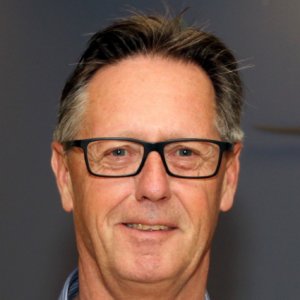
Letter From the Executive Director

This is my first Magazine letter since becoming BSF’s Executive Director last October. Of course, the ongoing pandemic has provided challenges for us at BSF just as it has for people and organizations throughout the world. However, as I continue familiarizing myself with BSF’s projects and grantees – both current and former – I have come to have an even greater appreciation for the contributions that US-Israel research collaborations make to our world.
I was reminded of this just a few days after I started my new position, when I heard that Dr. Charles Rice had been awarded the Nobel Prize in Medicine. He is the 47th Nobel laureate to have collaborated with Israeli scientists on BSF grants.
Think of it this way: BSF has been in existence since 1972, and we have 47 Nobel laureates. That’s a rate of almost one per year. That’s more Nobel winners than United States presidents. (Pres. Joe Biden just become No. 46.) Any science organization would be proud of that fact, and when you consider the enormous progress Israel has made in so many scientific fields during the last half century, this statistic is even more remarkable.
In this issue, we are pleased to present an exclusive Q & A with Charles Rice, conducted via Zoom by BSF Board of Governors member Dr. Peter Hotez and science writer Alan Kravitz. I also sat in on the interview, and what fascinated me most about Charlie is how humble and unassuming he is, considering that he helped discover the hepatitis C virus and pioneered vaccine development for this devastating disease. Even with the title of Nobel laureate, he is quick to acknowledge the contributions of fellow scientists he has worked with throughout his career.
He also has high praise for his Israeli science partners over the years. This includes Charlie’s Israeli BSF project partner, Dr. Amir Shlomai, who dedicated himself to the study of hepatitis B. In this issue, you will learn from both of them about their enduring partnership, and about their efforts to examine the connection between hepatitis B and liver cancer, with the hope that their work will eventually lead to new drugs that will save or at least significantly prolong patients’ lives.
We also shine the spotlight on some of our own up and coming award winners. For Israeli scientists receiving their first BSF grants, our Neufeld and Bergmann awards are coveted honors. Here, you will meet our latest winners along with their American partners. Together, they are blazing new trails across the life and health sciences.
Speaking of trailblazers, Dr. Iris Eisenberg, one of our newest Board of Governors members, personifies that term. Her PhD research investigating the biology of neuromuscular disorders led to the identification of the gene (GNE-myopathy) causing hereditary inclusion body myopathy (HIBM), a debilitating genetic disorder that causes progressive muscle weakness. Her research in Duchenne Muscular Dystrophy pioneered understanding of the role of small, non-coding RNAs in the pathology of the disease, as well as their potential role in future clinical applications. In this issue, she talks about her passion for science, as well as her desire to create more opportunities for young Israeli scientists – especially women who, despite recent advances, still encounter too many barriers when it comes to perusing science careers.
For people in Israel, in the United States and all over the world, 2020 was no doubt a very tough year. But today, even with new strains of the coronavirus, we have new vaccines in place for getting the virus under control. In the US, a new administration once again places science at the forefront of major decisions and policies. In Israel, research institutions in the West Bank can now participate in BSF competitions, thanks to a recently amended cooperation agreements between the US and Israel. While controversial in some circles, this move opens the door for increased scientific partnerships for the benefit of all.
If the pandemic has any silver lining, it’s this: More than ever, people understand the importance of science, and what it means in all aspects of their lives. Since its inception, BSF has aimed support the best and the brightest scientists in the United States and Israel. We have more than lived up to that promise, and in my new role as Executive Director, I promise to continue BSF’s legacy and expand its reach.
Sincerely,

Anton F. Post, PhD
Executive Director
